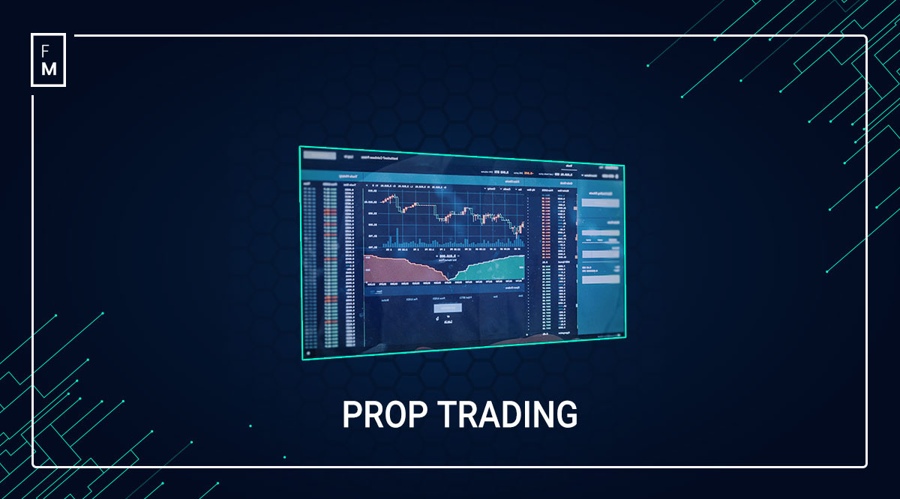“We paid $1 million to traders last week”: such claims are common in the prop trading industry, and have become a key strategy for creating a sense of authenticity around prop trading brands. However, how can anyone verify these bold statements?
Technically trader-funded firms, these platforms pay traders and vendors both in fiat and crypto. Although crypto payments bring a level of transparency, FinanceMagnates.com understands that many prop firms even include vendor costs and other expenses in their payout claims to inflate the figure.
No Way to Verify Payout Claims
Prop trading firms are not financial services providers, meaning they do not come under heavy regulatory scrutiny like forex and contracts for differences (CFDs) brokers. They operate like any regular eCommerce platform: they sell challenges, and buyers trade in a simulated environment; if they succeed they are entitled to payouts.
They are not required to report any data, unlike CFD brokers, who must report the percentage of retail clients who lose funds, among other data points.
You may also like: Regulators Conducted Preliminary Reviews on Potential Prop Trading Regulations
These companies only have to report to business registries, depending on their jurisdiction. However, the reporting requirements are not as thorough as those of financial regulators. Companies can often get away with disclosing only their income statement and assets.
Some prop firms do share there payout details in their annual financial disclosures, but the number of such business are less.
Most of such platforms—mainly smaller or medium-sized ones—regularly make large payout claims. However, there is no way to verify them. Although there are claims by individual traders and finfluencers of receiving payouts from these platforms, they cannot be verified by a third-party. Many prop firms even made claims of millions in payouts, but then suddenly shut their business overnight.
When it comes to profitable prop traders, the margin is also thin. According to FPFX Tech’s data, only 7 per cent manage to turn a profit. Among those who do succeed, the average earnings are modest: just 4 per cent of their allocated capital.
One prop firm FinanceMagnates.com talked to highlighted it does not post any payout claims as there’s no way to fact-check that figure by a third-party. They simply prefer to stay out on the game. If at some point some of its competitor props claim much higher payouts, it would look like a much smaller prop firm, although in reality it might be a much bigger firm than the competition.
Inflated Payout Claims
While fiat transactions remain difficult to trace for non-governmental organisations, the scenario is different for crypto payments. Many prop trading firms also make their payouts in cryptocurrencies, enabling dedicated websites to track these transactions.
One such platform is Payout Junction, which tracks payouts made by prop trading platforms through Riseworks.io. A glance at the website shows that many prop firms pay out millions each month. However, there is a catch.
“Firms may also pay out via additional methods and use their Rise wallets for other operating expenses, not solely for trader payouts,” a footnote on Payout Junction’s website mentions, adding that the prop firm “listings [on its website] are not endorsements.”
Message at the footer of Payout Junction’s website
Although blockchain-based payments through Rise are transparent and can be tracked, there is a strong chance that these numbers are inflated with salaries and other operational costs.
You may also like: Your Prop Trading Account Hangs on Infusion
One top prop firm also highlighted this issue to FinanceMagnates.com, stating that “several platforms inflate their payout figures.” It added that because of these loopholes, it becomes difficult for it to disclose payout figures.
Concerns about accurate payout reporting are also a talking point among many industry experts. Many believe this should be one of the parameters prop firms must disclose to regulators if the industry becomes regulated.
“We paid $1 million to traders last week”: such claims are common in the prop trading industry, and have become a key strategy for creating a sense of authenticity around prop trading brands. However, how can anyone verify these bold statements?
Technically trader-funded firms, these platforms pay traders and vendors both in fiat and crypto. Although crypto payments bring a level of transparency, FinanceMagnates.com understands that many prop firms even include vendor costs and other expenses in their payout claims to inflate the figure.
No Way to Verify Payout Claims
Prop trading firms are not financial services providers, meaning they do not come under heavy regulatory scrutiny like forex and contracts for differences (CFDs) brokers. They operate like any regular eCommerce platform: they sell challenges, and buyers trade in a simulated environment; if they succeed they are entitled to payouts.
They are not required to report any data, unlike CFD brokers, who must report the percentage of retail clients who lose funds, among other data points.
You may also like: Regulators Conducted Preliminary Reviews on Potential Prop Trading Regulations
These companies only have to report to business registries, depending on their jurisdiction. However, the reporting requirements are not as thorough as those of financial regulators. Companies can often get away with disclosing only their income statement and assets.
Some prop firms do share there payout details in their annual financial disclosures, but the number of such business are less.
Most of such platforms—mainly smaller or medium-sized ones—regularly make large payout claims. However, there is no way to verify them. Although there are claims by individual traders and finfluencers of receiving payouts from these platforms, they cannot be verified by a third-party. Many prop firms even made claims of millions in payouts, but then suddenly shut their business overnight.
When it comes to profitable prop traders, the margin is also thin. According to FPFX Tech’s data, only 7 per cent manage to turn a profit. Among those who do succeed, the average earnings are modest: just 4 per cent of their allocated capital.
One prop firm FinanceMagnates.com talked to highlighted it does not post any payout claims as there’s no way to fact-check that figure by a third-party. They simply prefer to stay out on the game. If at some point some of its competitor props claim much higher payouts, it would look like a much smaller prop firm, although in reality it might be a much bigger firm than the competition.
Inflated Payout Claims
While fiat transactions remain difficult to trace for non-governmental organisations, the scenario is different for crypto payments. Many prop trading firms also make their payouts in cryptocurrencies, enabling dedicated websites to track these transactions.
One such platform is Payout Junction, which tracks payouts made by prop trading platforms through Riseworks.io. A glance at the website shows that many prop firms pay out millions each month. However, there is a catch.
“Firms may also pay out via additional methods and use their Rise wallets for other operating expenses, not solely for trader payouts,” a footnote on Payout Junction’s website mentions, adding that the prop firm “listings [on its website] are not endorsements.”
Message at the footer of Payout Junction’s website
Although blockchain-based payments through Rise are transparent and can be tracked, there is a strong chance that these numbers are inflated with salaries and other operational costs.
You may also like: Your Prop Trading Account Hangs on Infusion
One top prop firm also highlighted this issue to FinanceMagnates.com, stating that “several platforms inflate their payout figures.” It added that because of these loopholes, it becomes difficult for it to disclose payout figures.
Concerns about accurate payout reporting are also a talking point among many industry experts. Many believe this should be one of the parameters prop firms must disclose to regulators if the industry becomes regulated.










